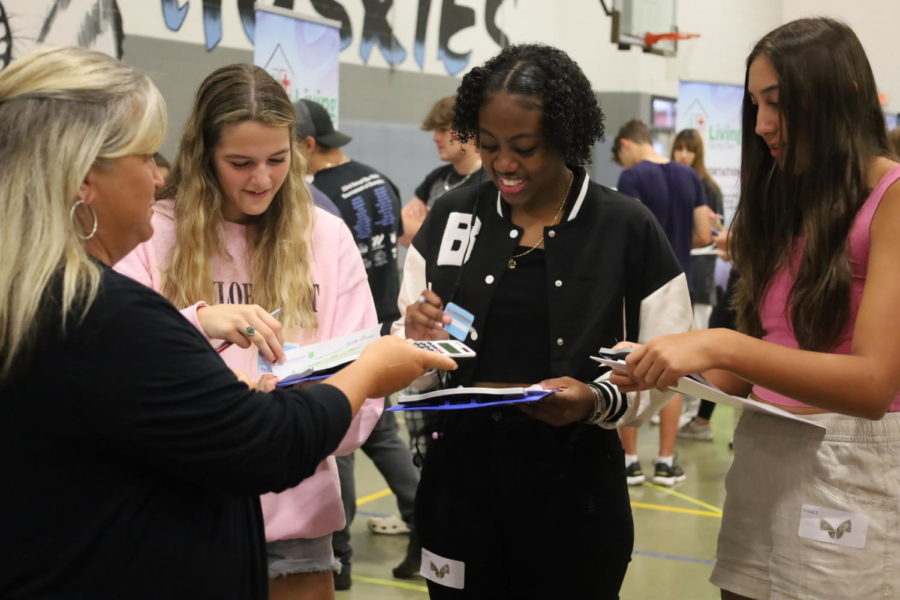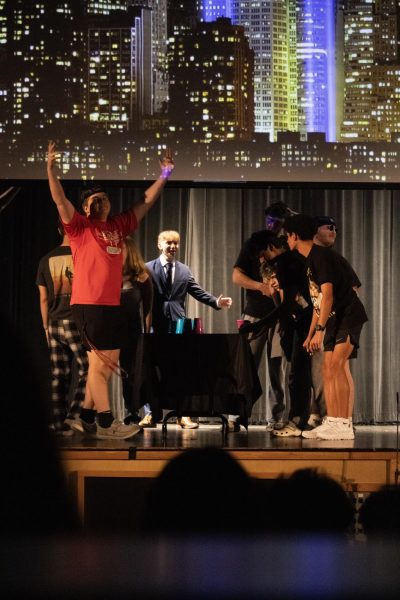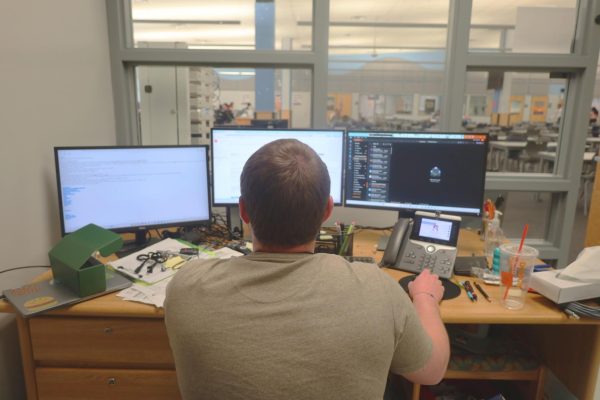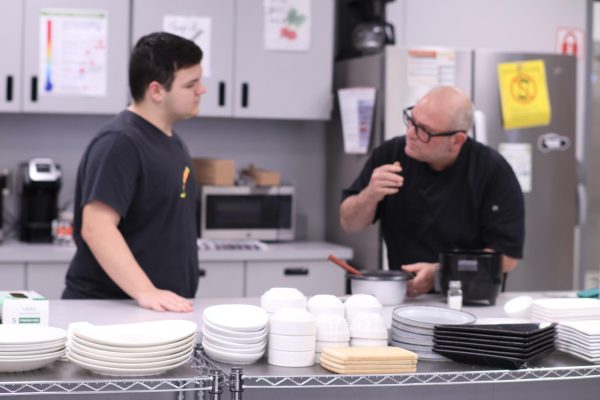“Living On My Own” proves financial literacy is no game
photo by Janell Lim
(from left to right) PTSA volunteer Sonja Klopfenstein talks to sophomores Marin Mendell, Ayla Carty and Noura Alrahima at her station, “Fun Place.” Students could choose to go on a cruise for $300 a person, or buy a streaming subscription for $10 a month.
Sophomore Jessica Buzzard woke up as a normal high schooler, brushing her teeth, getting dressed and going to school. But for an hour or two, she was a physical therapist, married with two kids, for the sake of a game of life called “Living On My Own.”
On April 24-25, administration collaborated with the University of Florida to bring “Living On My Own” to Hagerty, an interactive session where students learned financial responsibilities through a simulated game of life. Assigned different jobs, annual incomes and family circumstances at the start of the program, students went through different stations labeled “Cool Car Co.,” “Great Groceries,” “Bank Your Money” and “Want It All Mall,” where they could buy everything from food to a Netflix subscription. As they tried to budget their money, volunteers randomly hand them “Life happens” cards, which can range from having another kid, getting laid off or going on a date night.
“It’s like the board game, ‘Game of Life,’ but in real life,” assistant principal Kristi Draus said. “It’s an experience for kids to really get to know the real world. Getting out of Mom’s house where she doesn’t decide for you and having to make those decisions and see how far money really gets you.”
According to Draus, the PTSA and counselors first brought the idea to her nearly a year ago and contacted UF to make it happen. After getting the proper approval, working out dates that fit both Hagerty and UF, and asking for parent volunteers, “Living On My Own” was ready to come to Hagerty.
“I think financial literacy is important. I think it’s important to think about the decisions that you’re making as a young person and how pursuing certifications or higher education will influence how you’re able to support yourself,” UF Youth Development Agent Karen Henry said.
As the first year of the program at Hagerty, several classes were chosen to test out the simulation, including coach Steven Mikles’ Algebra II class. Prior to the event, his class went through some basic financial literacy lessons and researched what job they wanted.
“Everybody in my classes seemed to really enjoy it,” Mikels said. “And I think it’s important because they think they have an idea of how much money they’re going to make, but they don’t realize how much gets taken out for federal income tax and insurance and all that.”
Although Buzzard says a married physical therapist is not the future she envisions for herself, she said the event was a good experience.
“I learned a lot of things I didn’t know, like how childcare is so expensive and how I need to hold back with entertainment,” Buzzard said. “I would recommend it to other students because before this, I didn’t know how to save.”
Meanwhile, junior Marissa Castellano roleplayed a single computer programmer with a high source of income, showing her the importance of a good job.
“It shows people to get a higher education if you want better things in your life,” Castellano said. “I ended up with a $2,000 balance in the end, a new car and a historic house on 50 acres.”
As opposed to the typical lecture, Draus hopes students are able to apply the skills they learn from this event to the real world.
“What I’m hoping students will take away from it is a little bit of a dose of reality. There’s a lot of stress in teenage life, but it’s not the same as adult stress,” Draus said. “For some people, the cost of college financially impacts you for 20-30 years after college. So if kids could learn a little bit about what it really takes to live in the real world, even if just a couple of them start out on a different foot, it’s worth it.”
Your donation will support the student journalists of Hagerty High School. We are an ad-free publication, and your contribution helps us publish six issues of the BluePrint and cover our annual website hosting costs. Thank you so much!







